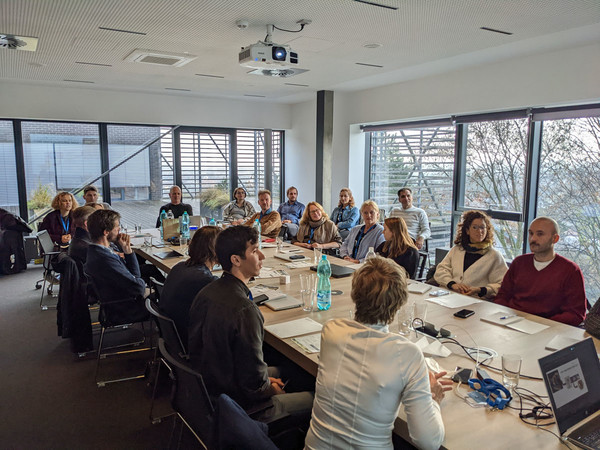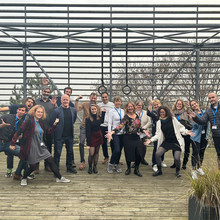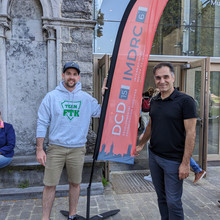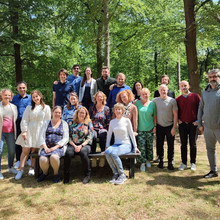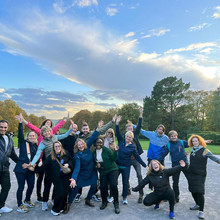In June 2024, academic staff members Ludvík Valtr and Reza Abdollahipour from the Faculty of Physical Culture at Palacký University Olomouc took part in a professional training mobility at the prestigious Ghent University in Belgium. The mobility focused on deepening collaboration with the research team led by Prof. Frederik Deconinck, a leading global expert in motor learning and motor development. Prof. Deconinck has long been dedicated to the study of Developmental Coordination Disorder (DCD), and his team plays a key role in the DCD Big Ideas Group, a global network of top researchers in this field.
The DCD Big Ideas Group, whose founding members include experts from FTK UP, was established to unite specialists dedicated to DCD in children and their families and to create a platform for exchanging scientific knowledge and expertise. The group held its inaugural meeting in November 2022 at the Faculty of Physical Culture at Palacký University Olomouc, making FTK UP not only a founding member but also the host and initiator of this collaborative effort. Despite being a relatively young initiative, the group has already published several key articles in high-impact journals (e.g. Frontiers in Public Health and Biomedical Journal), successfully presented its findings at prestigious DCD-focused conferences, and raised awareness about DCD through targeted outreach efforts, including a research-based video.
The cooperation between FTK UP researchers and Prof. Deconinck’s team has significantly contributed to the advancement of scientific understanding in this field in recent years.
The primary focus of the visit to Ghent was the topic of children with DCD. Activities included visits to research laboratories, expert training, and intensive exchanges of current research findings and practical experience. Discussions revolved around profiling children with DCD, identifying suitable diagnostic tools and intervention programs that can support children's motor development and improve their quality of life. Attention was also given to raising awareness among both professionals and the general public, including educators and parents—an essential step toward improving care and support for children with DCD.
A key highlight of the visit was the planning of future joint research projects and the sharing of methodological approaches that could bring new perspectives to developmental diagnostics and effective intervention strategies. The mobility not only enhanced scientific cooperation between the two institutions but also enriched the expertise and professional skills of the participants—ultimately contributing to the quality of teaching and research at their home institution.
This visit represents another significant step in strengthening international collaboration and the exchange of expertise in the field of Developmental Coordination Disorder and motor development, further reinforcing the position of the Faculty of Physical Culture as a key player in DCD research, both nationally and internationally.
